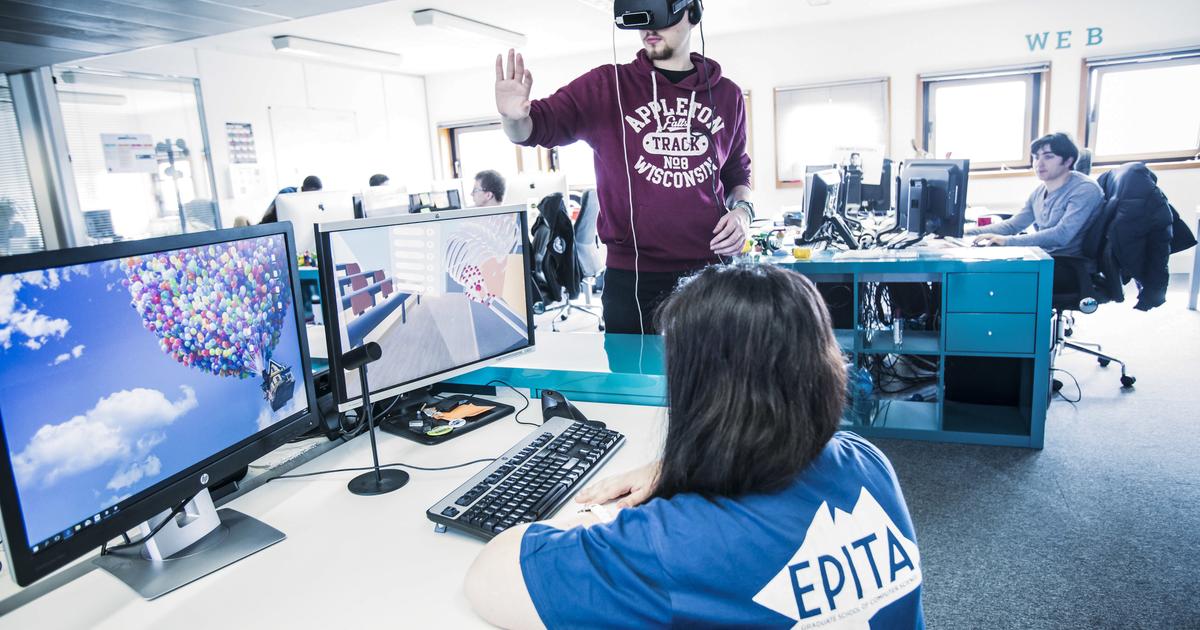Vodafone announced a few weeks ago that it is looking for 600 computer engineers for its European R&D center in Malaga, a city where Google is already looking for new employees.
PepsiCo will incorporate 400 people until 2024 in Barcelona.
Carto offers vacancies in Seville.
BASF, which has hired 300 professionals in the last three years in Madrid, affirms that it will continue to grow.
Large companies have launched themselves in search of technological talent in Spain.
Their demand is added to that of
start-ups
, SMEs and traditional sectors such as banking in full digitization.
The voracity has generated an unprecedented scarcity.
"There is a tremendous mess with the workers: some companies take them away from others," says a worried and surprised Felipe Romera, director of the Malaga Tech Park, where a good part of the 21,000 people who work have a technological profile.
The situation is repeated in Valencia, Seville, Madrid, Bilbao or Barcelona.
In the short term, it will continue.
Amazon, Apple, Nestlé, Qonto or Novartis seek to expand their staff in the Iberian Peninsula.
The arrival of technology companies in Spain has not been by chance.
National professionals have a large international poster and companies have been settling here attracted by that talent.
They consider it competitive.
That is, high knowledge and performance versus low cost.
A computer engineer with four years of experience earns about 40,000 euros gross per year, according to the companies consulted.
The combination has exerted a pull effect and boosted qualified demand.
The sectors most in need are artificial intelligence, robotics,
big data
, cybersecurity, virtual and augmented reality or
cloud
, as explained by the sector and confirmed by the Linkedin Emerging Jobs Report.
The digitization of traditional sectors such as banks, insurance or real estate and the needs of thousands of SMEs also have an influence.
“Engineers know this and have the upper hand.
Salaries are skyrocketing,” says Félix Ruiz, executive director of Playtomic, by video call.
Who wants the best, must pay them.
Patrick Goett is the head of the
hub
digital that BASF has in Madrid.
“We came in 2019 because there were more professionals available here.
It was a differentiating factor”, he explains in wonderful Spanish.
The German multinational has signed 300 people in the last three years.
Most are local "because they are very prepared", although 20% come from abroad.
The company has learned that if they want the best, they have to go after them.
"In Germany we wait for candidates to apply for job offers, here the initiative is ours," he says.
His team prepares the job interview more than the possible future employee.
They seek to align arguments to convince them.
They do it with telecommuting, competitive salaries, possibilities for free time, clear hierarchies and ambitious projects.
It is not easy, but when they succeed, a second problem arises: retaining it.
To avoid the current shortage of specialists, Google began to till its ground a decade ago.
After acquiring VirusTotal from Malaga, his team, led by Bernardo Quintero, promoted training in his sector, cybersecurity.
Among his initiatives, the promotion —together with the University of Malaga— of a university expert degree in Reverse Engineering and Malware Intelligence stands out.
With 30 participants each year, it is now in its fourth edition.
"We have formed our profiles and now we don't have that problem," says Quintero, who also promotes the presence of women in the sector.
Companies look to universities: in Spain there are a hundred schools and faculties with degrees related to computing, 25 of them private.
An average of 23,000 annual graduates leave its classrooms,
insufficient to satisfy the market.
Last year, 9,781 places were offered, to which 16,022 students competed as the first option, according to data from the Ministry of Universities.
That is, more than 6,000 applicants were left out.
From the 2015-2016 academic year, up to 82,622 students opted for 55,591 places.
More than 27,000 had to give up their technological studies.
According to the National Institute of Statistics, the unemployment rate in Computer Science is among the five lowest of university studies, barely 3.8%.
000 had to give up their technological studies.
According to the National Institute of Statistics, the unemployment rate in Computer Science is among the five lowest in university studies, barely 3.8%.
000 had to give up their technological studies.
According to the National Institute of Statistics, the unemployment rate in Computer Science is among the five lowest in university studies, barely 3.8%.
Flexibility and speed
Companies ask for more training spaces —such as FP— and ask universities for more flexibility and speed of adaptation.
“Regulated and non-regulated training must be close to the demand.
And redirect their studies to STEM specialties [science, technology, engineering and mathematics].
If done well, Spain will be a very relevant country as a technological benchmark.
It is an opportunity that should not be missed”, says Miquel Martín, executive director of Tech Barcelona, a private association that seeks to promote start-ups and attract foreign talent to the Catalan capital.
The availability of talent is, in any big city, essential for its future.
“The university has a very important role there.
That is why the training offer will grow.
And it must do it in an orderly and planned manner”, points out Rafael Ventura,
Vodafone knows that finding 600 engineers in the Malaga capital —its territorial director, Rafael Alcaide, wants 80% to be local— will be a challenge.
The same as for PepsiCo and the 400 people you want to have in your
hub
Barcelona, where Ocado already has 200 workers and Nestlé has 600. The cities, aware of the benefits for their economies of having these companies close by, want to help them find the profiles they are looking for.
They sell their virtues as best they can to attract workers who, in turn, will attract companies.
And vice versa.
To convince one and the other, they highlight their communications, their leisure options or the availability of offices.
They know that life beyond work is essential for workers in the digital economy.
The municipalities have started a competition in which Madrid stands out for its capital status, Barcelona for its history and cosmopolitan atmosphere, Seville for its economic strength and its Science and Technology Park in Cartuja, Malaga for its quality of life,
cultural offer and dynamism.
In all there are dozens of job offers.
Their common challenge is to train, attract and retain professionals.
If they find them.

/cloudfront-eu-central-1.images.arcpublishing.com/prisa/QQLQP7GREVHNHK2QPS6Q53OCSQ.jpg)






/cloudfront-eu-central-1.images.arcpublishing.com/prisa/CBM2UCNBEJCXFLJSEVQOH6Y5WU.jpg)
